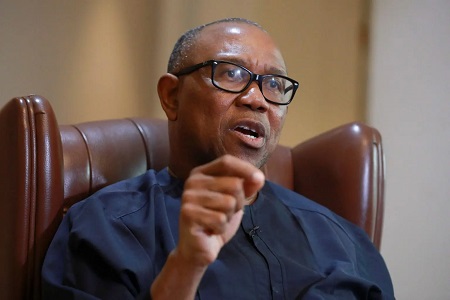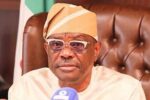Investing More In Northern Nigeria Can End Insecurity – Peter Obi

Peter Obi, the presidential candidate of the Labour Party (LP) in the 2023 general elections has revealed how to end insecurity in the north.
According to him, increased investment in northern Nigeria can help combat poverty and insecurity in the region.
Speaking during a meeting of the National Political Consultative Group (North) held in Abuja on Sunday, Obi said the North holds the key to Nigeria’s transformation due to its vast agricultural and human potential.
“I’ve always said the North can change Nigeria,” Obi declared. “The greatest asset of this country is the North. We can make more money from agriculture than we make from oil.”
He lamented the high poverty rates across northern states, linking the situation to years of underinvestment and policy neglect. According to him, the lack of basic opportunities has created fertile ground for insecurity to thrive.
“And when you have poverty, you have humanity that you cannot control because when people don’t know where the next meal will come from, you can never control their actions,” he said.
“And they easily recruit,” Obi added, referring to how extremist groups and bandits prey on impoverished communities.
He argued that pulling people out of poverty through education and agricultural reform would significantly reduce insecurity.
“The more you pull people out of poverty, the more you solve insecurity. We need to invest in education,” he stated.
Obi also called attention to the plight of out-of-school children, particularly the Almajiri population in the North. He emphasized the need for inclusive and mobile education models.
“We can’t talk about free universal basic education when people are not going to school. Our children are not in school,” he said.
“I’ve taken time to go to the North and sat down with the Almajiri children; they are the most brilliant people God created. If they can’t go to school, take the school to them.”
Using comparative data, Obi noted Nigeria’s low agricultural output, citing rice production as an example.
“This entire country produces less than six million tonnes of rice; that is less than 10 percent of what Bangladesh produces,” he said.
“Bangladesh is a country that lives on 148,600 square kilometres of land — that’s the size of just two northern states: Niger and Borno combined.”
Obi expressed optimism that with the right policies, political will, and investment in people, Nigeria, particularly its northern region can overcome its challenges and lead the continent in development.





